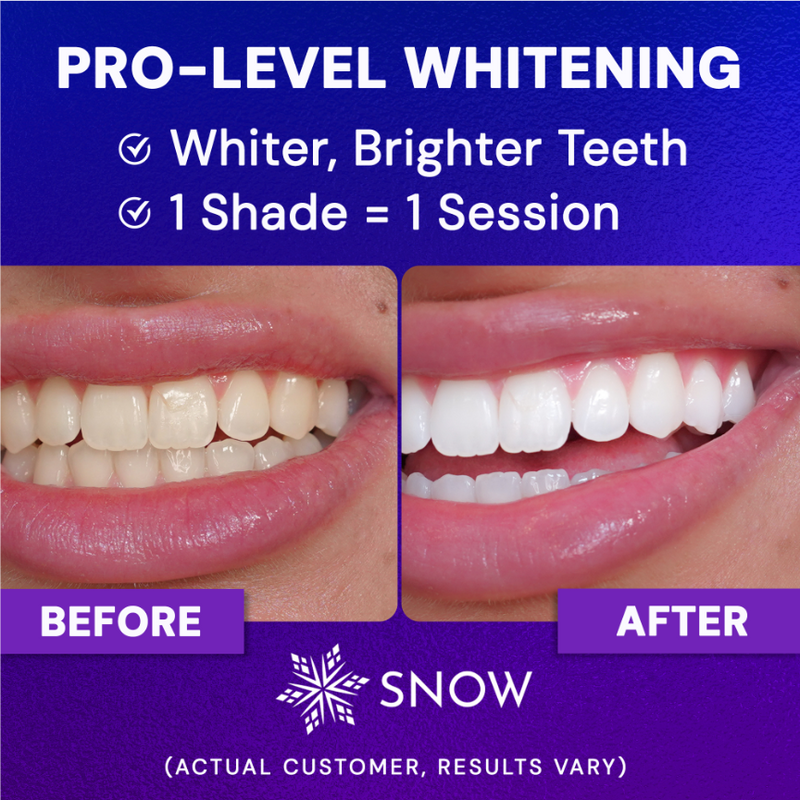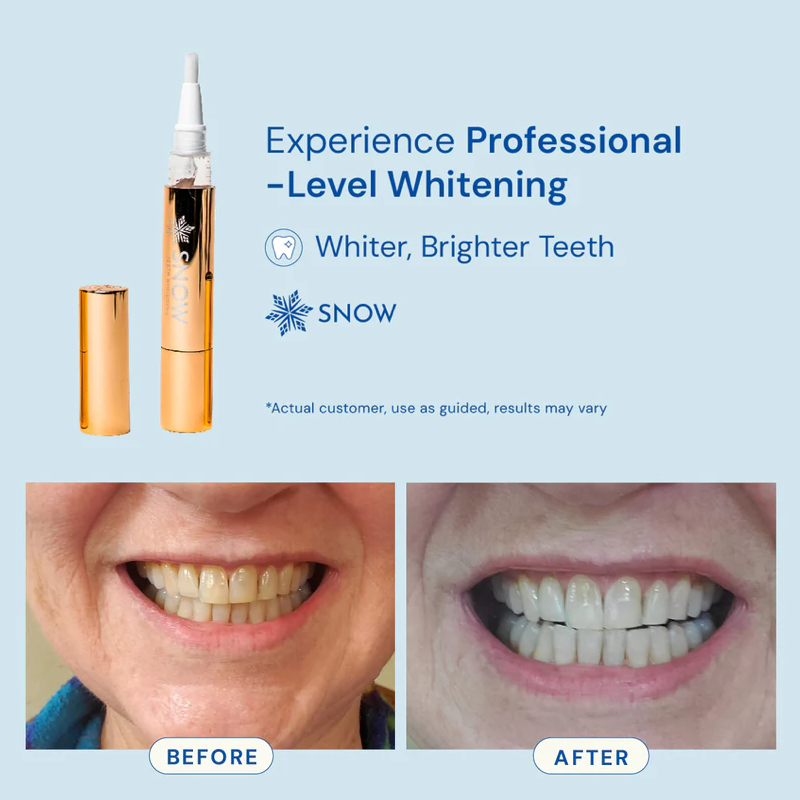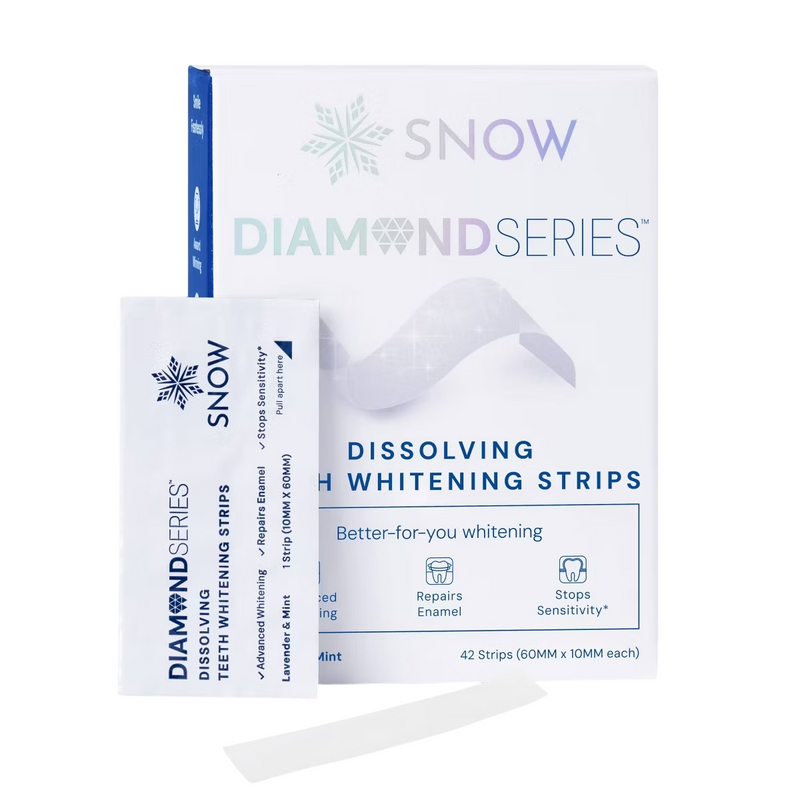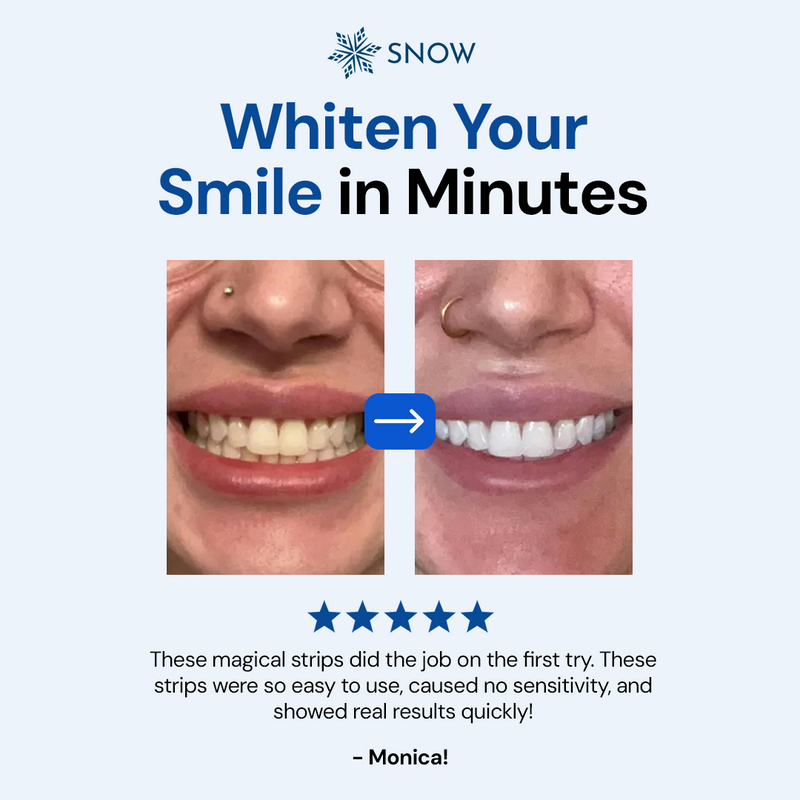Most people maintain the same brushing routine they were taught from a young age: moisten your toothbrush, brush, spit, and rinse.
To rinse or not to rinse? That is the question. Many people have asked us, ‘Does not rinsing toothpaste after brushing make your teeth whiter?’
As per our expertise, not rinsing off toothpaste after brushing allows the active ingredients more time to interact with your tooth enamel. This prolonged contact can enhance remineralization, strengthen your teeth, provide better protection against decay, and improve whitening results.
In this guide, we’ll cover more of the benefits of not rinsing your toothpaste after brushing, give our best brushing tips, and recommend our best at-home products to enhance your brushing routine.
Let’s get started!
What this article covers:
Should You Rinse After Brushing?
You should brush your teeth twice a day for about two minutes each time. Here are some more benefits related to not rinsing your teeth after brushing.
Potential Benefits Of Not Rinsing After Brushing
For instance, SNOW’s top whitening toothpaste has many benefits when you don’t rinse it off your teeth right away. It contains hydroxyapatite and other effective abrasive agents to remove surface stains, prevent tooth decay, strengthen tooth enamel, and fight off plaque.

It’s also stellar at removing tooth stains caused by various medications, making it the best toothpaste for tetracycline-stained teeth.
It works best when you apply our toothpaste for whitening teeth directly to your teeth and let it stay put for about 10 minutes after using it. Don't eat or drink anything during that time because this will reduce its effectiveness. Rinsing your teeth immediately after brushing can wash away the hydroxyapatite and reduce its whitening benefits.
For those looking to take their oral care routine to the next level, many wonder should you leave toothpaste on overnight for even greater benefits.
This extended application method allows the hydroxyapatite and other active agents to work for hours rather than minutes, potentially delivering superior remineralization results.
Research suggests that overnight toothpaste application can significantly enhance enamel protection and whitening effects, especially with nano-hydroxyapatite formulations.
The key is choosing the right toothpaste formulation that's safe for prolonged contact with your teeth and gums.
4 More Expert Toothbrushing Tips
Healthy brushing habits improve your oral hygiene and work wonders for whitening your teeth. Here are four more toothbrushing tips to help you get the most out of your dental routine and whitening experience.
1. Spit, Don't Rinse
Our findings show that rinsing does more harm than good for your oral health. Spit out the toothpaste after you brush, and don’t rinse your mouth with water or mouthwash right away.
Follow this guideline while also using our whitening powder, which can be added to your regular toothpaste to boost its whitening effect. This allows the active agents in the toothpaste to remain on your teeth and maximize its protective effect. We recommend flossing before brushing your teeth to eliminate loose bacteria and food particles.

2. Use Over-The-Counter Products While Brushing
Over-the-counter (OTC) teeth whitening products can bolster your regular brushing routine. Let's look at some of the best OTC products by SNOW.
Teeth Whitening Toothbrush
Our investigation demonstrated that adding our whitening electric toothbrush to your brushing routine can exponentially improve your oral health.
It has a 2-minute timer with 30-second intervals and a signature blue LED that enhances whitening results. It also has four customized brushing modes and advanced sonic technology that supports better cleaning.
Teeth Whitening Foam
Struggling to keep your smile, retainer, and nightguard clean? SNOW’s award-winning tooth-whitening foam is precisely what you need.
It contains hydroxyapatite and arginine to boost enamel health, plus it’s also gentle, free of parabens, and approved by vegans. Just spray the foam into your aligner tray or night guard for splendid results while you sleep.
Whitening Mouthwash
Say goodbye to bad breath and compromised oral health with our mouthwash for teeth whitening. It contains natural mint for cleaner breath and aloe for a refreshing smell and taste. It’s also free from harsh ingredients and uses hydrogen peroxide to whiten teeth effectively and safely.
3. Follow A Healthy Diet
You are what you eat has never been truer than when it comes to teeth whitening. Can you really eat your way to healthier, whiter teeth? Based on our research, some foods, like dark sauces, dark chocolate, and acidic foods, cause discoloration. Managing your intake of these foods can help you maintain a whiter smile.
Our cleaner smile teeth whitening kit not only slots well into your daily brushing routine but also goes a long way to improving your overall dental health. It’s dentist recommended and contains hydroxyapatite to restore and protect tooth enamel.

4. Change Your Tea And Coffee Consumption Habits
Tea and coffee are some of the biggest culprits for tooth discoloration. If you've just gotten your teeth whitened, avoid these drinks as much as you can to help maintain your sparkling smile.
What if you're not willing to give them up? We understand it’s hard to say bye-bye to your favorite drinks. Instead of avoiding them completely, we recommend using a straw while drinking.
Instead of giving up on your favorite treats, we highly recommend our whitening strips to tackle persistent tooth stains caused by dark-colored foods and beverages. They’re easy to use and can whiten your teeth up to seven shades.

Conclusion
Based on our observations, the active chemicals in toothpaste have more time to interact with your tooth enamel when you don't rinse it off after brushing. This extended contact can boost remineralization, fortify your teeth, offer improved decay resistance, and enhance your whitening effects.
Maintaining a bright, healthy, and whiter smile is more than just brushing your teeth after meals. It involves a combination of healthy habits like eating the right food, avoiding staining food and drinks, and using the best products to promote your oral hygiene.
If you're looking for the best DIY teeth whitening treatments and expert advice that do just this and more, check out SNOW's dynamic collection of oral care products to help you achieve a brilliant and healthy smile.
If you want to learn more, why not check out these articles below:
- Does Teeth Whitening Toothpaste Work?
- Is Whitening Toothpaste Bad for Your Teeth?
- PVP Ingredient for Teeth Whitening
- Does Teeth Whitening Foam Work?
- Can You Eat After Teeth Whitening Strips?
- How Long Do Teeth Whitening Strips Last?
- Should I Dry My Teeth Before Whitening Strips?
- Do Whitening Strips Work on Yellow Teeth?
- Do You Dry Your Teeth Before Whitening Strips
- How Long Do Teeth Whitening Strips Take to Work?
- Do Whitening Strips Work on Bonded Teeth?
- Are Teeth Whitening Strips Permanent?
- Does Saliva Ruin Teeth Whitening Strips?
- How to Whiten Between Teeth
- What Is Teeth Whitening?







































































